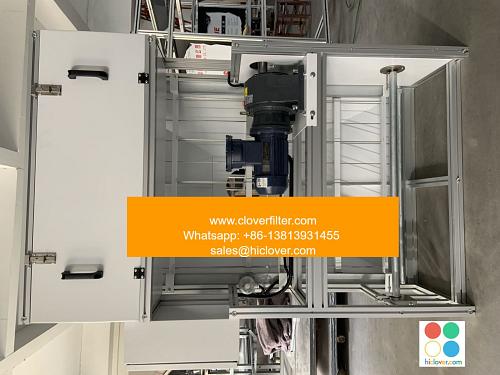The Future of Training in Air Filter Regulations: Regulatory Frameworks and Emerging Trends

As the world grapples with the challenges of air pollution, climate change, and public health, the importance of air filter regulations has never been more pressing. The training of professionals in this field is crucial to ensuring that air filters are designed, installed, and maintained in accordance with stringent regulatory frameworks. In this article, we will explore the future of training in air filter regulations, highlighting various application areas, emerging trends, and the key role of regulatory compliance in shaping the industry.
Regulatory Frameworks: A Global Perspective
The regulatory landscape for air filters varies across the globe, with different countries and regions having their own set of rules and guidelines. In the United States, for example, the Environmental Protection Agency (EPA) sets standards for air filter performance, while in the European Union, the Europen Standardization Committee (CEN) develops and implements harmonized standards for air filters. Understanding these regulatory frameworks is essential for professionals working in the air filter industry, as non-compliance can result in severe penalties and reputational damage.
Emerging Trends: Indoor Air Quality (IAQ) and Sustainable Technologies
The future of air filter regulations is closely tied to emerging trends in Indoor Air Quality (IAQ) and sustainable technologies. As concern for public health and wellbeing grows, there is an increasing focus on developing air filters that can effectively remove particulate matter (PM), volatile organic compounds (VOCs), and other harmful pollutants from the air. Additionally, the development of sustainable technologies, such as energy-efficient air filters and recyclable materials, is expected to play a key role in shaping the industry.
Application Areas: Commercial Buildings, Industrial Processes, and Transportation Systems
Air filter regulations have a wide range of application areas, including commercial buildings, industrial processes, and transportation systems. In commercial buildings, air filters are used to maintain good indoor air quality and prevent the spread of airborne diseases. In industrial processes, air filters are used to remove hazardous pollutants and particulate matter from the air, while in transportation systems, air filters are used to improve passenger comfort and vehicle performance.
Training and Professional Development: The Key to Regulatory Compliance
As the air filter industry continues to evolve, it is essential that professionals working in this field have access to regular training and professional development opportunities. This includes workshops, seminars, and online courses that focus on regulatory compliance, air filter design, and installation and maintenance best practices. By investing in the training and development of professionals, companies can ensure that they are well-equipped to meet the challenges of a rapidly changing regulatory landscape.
Conclusion: The Future of Training in Air Filter Regulations
In conclusion, the future of training in air filter regulations is closely tied to emerging trends in Indoor Air Quality (IAQ) and sustainable technologies. As the industry continues to evolve, it is essential that professionals working in this field have access to regular training and professional development opportunities. By understanding the regulatory frameworks that govern the industry and staying up-to-date with the latest technologies and trends, companies can ensure that they are well-equipped to meet the challenges of a rapidly changing regulatory landscape and provide high-quality air filters that meet the needs of a growing global market. You haven’t provided a prompt or question for me to respond to. Please provide more context or information so I can assist you better. What would you like to talk about or ask?

